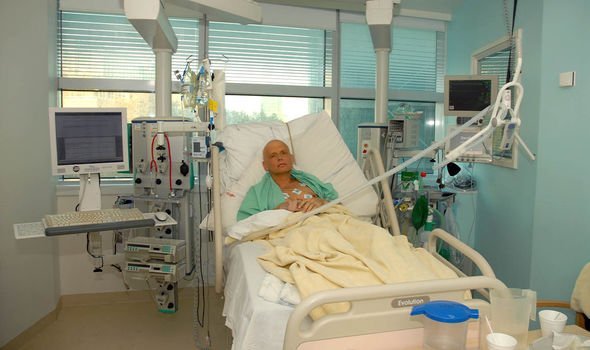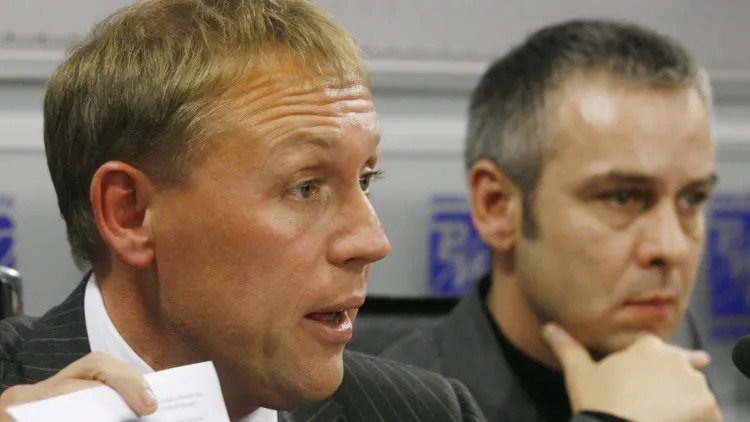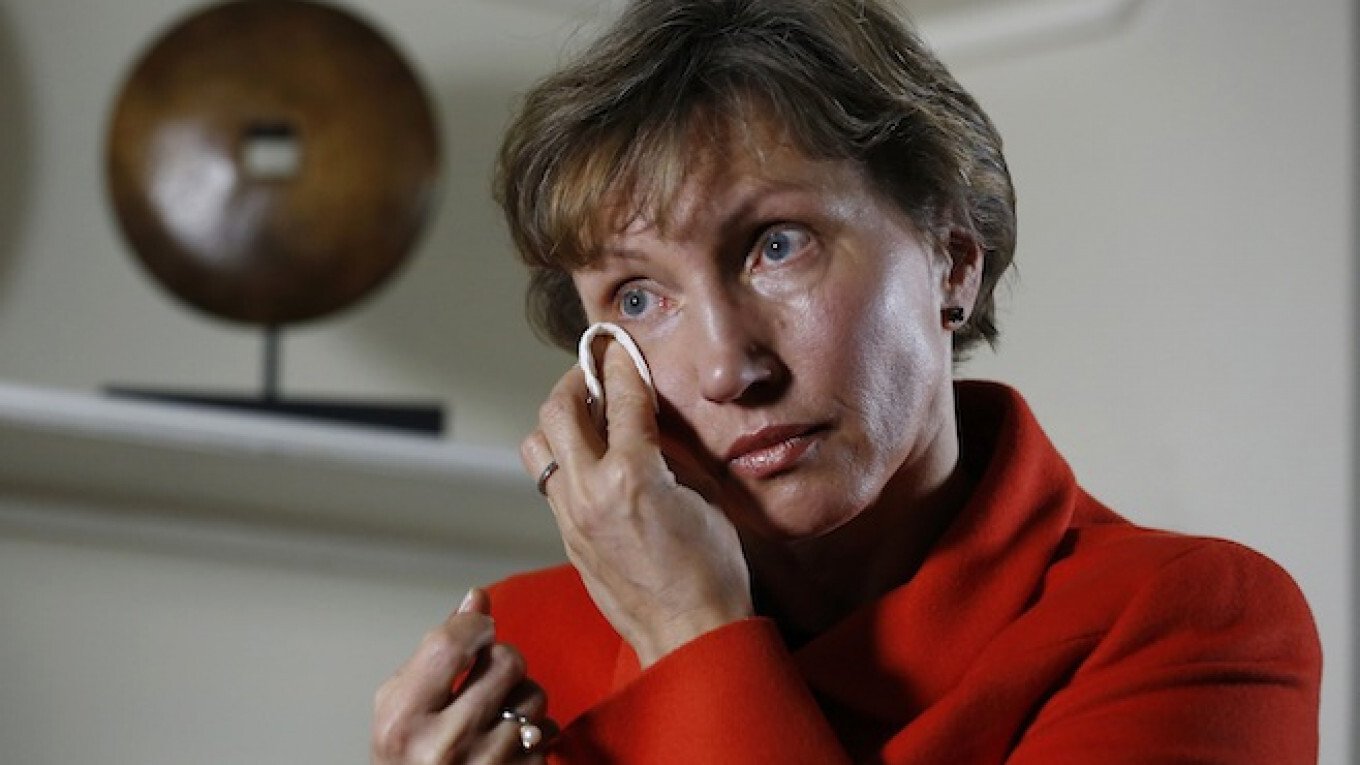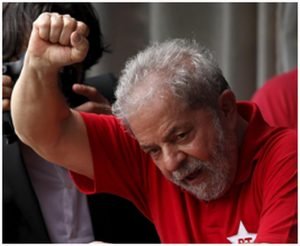
The European Court of Human Rights concluded on Tuesday that Russia was responsible for the murder of former KGB officer Alexander Litvinenko, who died agonizingly in 2006 after being poisoned in London with a rare radioactive substance.
Litvinenko, a defector turned vocal critic of the Kremlin, died three weeks after drinking green tea mixed with polonium-210 in a luxury London hotel.
Britain has long blamed Moscow for the attack, and the European court in Strasbourg, France, agreed on Tuesday, saying in a statement that “Litvinenko’s murder is attributable to Russia.” quick rebuke from the Kremlin.
The image of Litvinenko, 43, lying in his bed at University College Hospital, London, yellow, thin and with hair down, was featured in British and other Western newspapers.

On his deathbed, Litvinenko told detectives that he believed President Vladimir Putin—himself a former KGB spy—directly ordered his death, a charge denied by the Kremlin.
The use of a rare radioactive isotope on the streets of London, apparently to settle scores, plunged Anglo-Russian relations and Western distrust of the Kremlin to what was then a post-Cold War low.
A British inquiry concluded in 2016 that former KGB bodyguard Andrei Lugovoy and another Russian, Dmitry Kovtun, assassinated as part of an operation likely led by the Federal Security Service (FSB), the KGB’s main successor of the era. Soviet.
Endorsing this view, the ECHR said it considered “beyond any reasonable doubt that the murder was committed by Lugovoy and Kovtun.”

“The planned and complex operation involving the acquisition of a rare deadly poison, the preparations for the duo’s trip, and the repeated and constant attempts to administer the poison indicated that Litvinenko was the target of the operation.”
Kremlin spokesman Dmitry Peskov rejected the charge.
“The ECHR hardly has the technological authority or capacity to hold information on the subject,” he said. “There are still no results of this investigation and making such claims is, to say the least, unfounded.”
Lugovoy and Kovtun have always denied involvement. On Tuesday, Lugovoy said the ECHR’s decision was politically motivated.
“I think it’s extremely silly and damaging to the reputation of the European Court of Human Rights,” Lugovoy, a member of Russia’s parliament, told Reuters.
In a separate development on Tuesday, British police said a third Russian was accused in absentia of a 2018 attempt to kill former double agent Sergei Skripal with nervous agent Novichok, saying they can now also confirm that the three suspects were military intelligence agents.
- Daniel Negreanu Finally Breaks His Losing Streak to Win Big in Super High Roller Bowl
- Baby Died After Her Mother Left Her On A Trip For Six Days
- OUTSPOKEN: Why Brazil Is The Most Important Country Right Now? By Will Lisil
- How To Build My Artistic Identity In The Metaverse?
- The Spike Protein From Covid Vaccine Can Persist In The Body For Months, Causing Debilitating Symptoms, According To A Study
Russia also rejected any involvement in this case, which led to the expulsion of dozens of diplomats.
In the 2006 incident, polonium contamination was found in the teapot and bar of the hotel where Litvinenko had been staying, and traces of the highly radioactive substance were left in London – in offices, hotels, planes and the Emirates Stadium of the Arsenal football club.
But with the main suspects out of Russia’s reach, Britain could not proceed with the criminal prosecution.
Litvinenko’s widow Marina took the case to the ECHR, arguing that her husband had been killed “by order, acquiescence or connivance of the Russian authorities and that the Russian authorities did not conduct an effective domestic investigation into the murder”.
In a statement on Tuesday, she said the decision should mark a “turning point in appeasing Putin”.

“I am very sad to say this, but the Russia I love no longer belongs to the community of civilized nations,” she said.
Upon finding the Russian state responsible for Litvinenko’s death, the ECHR said Moscow would have information to prove it if the men were carrying out a “fraudulent operation”.
“However, the government has made no serious attempt to provide this information or to oppose the findings of the British authorities,” the document said.
A Russian judge on the ECtHR panel, Dmitry Dedov, disagreed with his six colleagues on the main finding of the court.
“I have found many deficiencies in the analysis of the British inquiry and the Court that raise reasonable doubts as to whether the suspects were involved in the poisoning and whether they were acting as agents of the state,” he said.
The ECHR ordered Russia to pay Marina Litvinenko 100,000 euros ($117,000) in damages and 22,500 euros in expenses.
The judge who oversaw the British inquiry said there were several reasons why the Russian state wanted to kill Litvinenko, who was granted British citizenship a month before her death on 23 November 2006.
The former spy was said to have betrayed the FSB by accusing it of carrying out bomb attacks on Russian apartment blocks in 1999, which killed more than 200 people, which the Kremlin blamed on Chechen rebels.
He was also close to other prominent Russian dissidents and accused the Putin government of colluding with organized crime. The judge said the FSB also had information that he had started working for Britain’s foreign intelligence agency, MI6.
($1 = 0.8522 euros)







